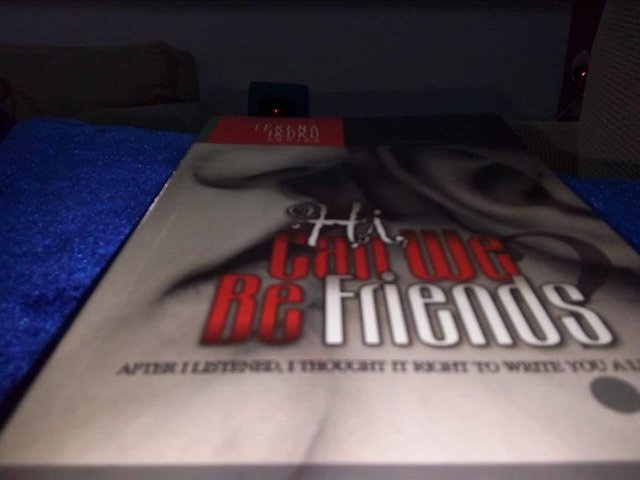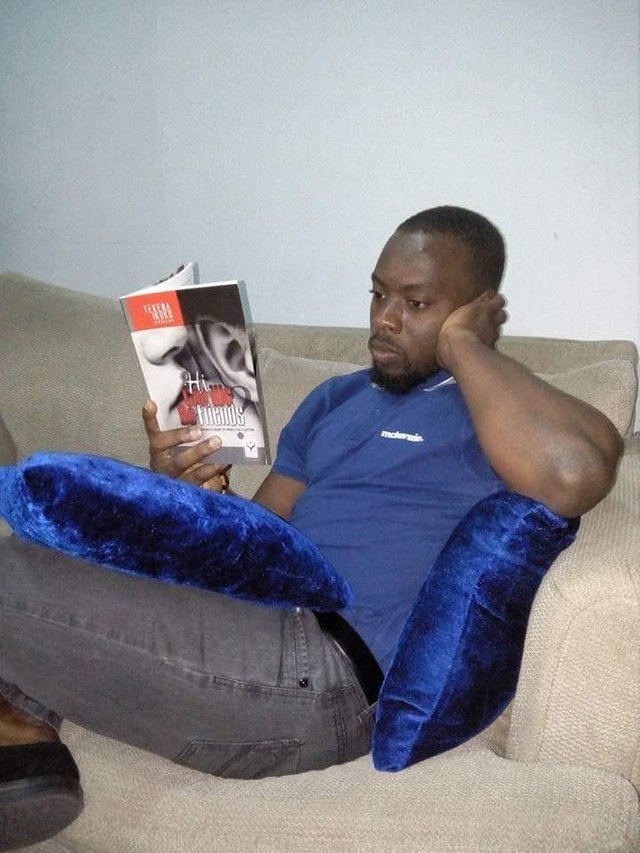CAN WE BE FRIENDS??


It was one of my earliest encounters with him, but I was sure the answer to his question was a resounding “YES”
Truth is, it was the first time I was giving serious thought to the question he posed to me, and the implications of either a yes or a no. Why was I saying yes? What did I know about him that has compelled me to say yes? Was I just concluding based on his ‘face’ value? Did I even know what kind of a person he was?
So before blurting my obvious answer, I decided to take time to read him; to gauge him. And we sat down to have a conversation.
What followed changed my life and my understanding about friendships and the choices of it.
First he asked me, “Why do you need a friend in the first place?”
I stuttered at first, then feigned that self-absorbing confidence that was as easy to see through as it was vain. After running round circles, giving a series of half answers, I sat back with an unenthusiastic slouch on my seat. Maybe even I was beginning to see things beyond the face value.
“Why do I need a friend in the first place?”
I had always known I needed people. Had always known the people we meet and associate with in life have a profound effect on us. But perhaps I had not paid attention to how to hone in on the ones that I really needed to stick around and the ones I could move on from. He said something about the inborn destiny drive and my Life-Team players, and proceeded to tell me about strangers and acquaintances; of intimate friends and lovers. He made me see how I had often wrongly ascribed the tag of friendship to people who were just acquaintances and colleagues and strangers. I was shocked. He told me that the friend of my friend was not automatically my friend, and showed me the role of time and trust in building friendships. He told me of friends who were for a season, and friends who stuck closer than a brother. He then went on to emphasize that I must first seek to be friendly before seeking for friends; and that I must be the kind of friend that sharpens the countenance of my friends. That, he said, is what real friends do.
Seeking to probe further, I asked him to tell me how I could define who was in and who wasn’t.
“You must seek to first understand yourself.” He said.
I thought he was getting off on a wrong tangent. “Are we still talking about friends and friendships here?” I asked. He gave me a long look and smiled.
“Yes, we are.” Then without waiting he asked, “Who are you?”
I could think of a thousand and one explanations and descriptions with which to give him an idea of the idea I had of me. My name, where I come from, my qualifications, my academic history, my work experience, my family roots, my village people and a host of other things. These were pointers, right? But deep down, even I knew those were not the answer. Roles maybe, achievements maybe, family origins maybe. But not my identity, I thought. So who am I?
No words came out. I stared into empty space, as if willing to pull the answer from thin air. But the answer was within, not without.
“If you do not define for yourself who you are, how then can you define who you walk with, who is your Life-Team mate and who is walking the path you are walking?”
The pieces were beginning to fall in place for me. But I still had questions. He, however, beat me to it.
“What type of friendship do you want? Why would you choose Mr A over Mr B for a friend? Where do you intend the friendship lead you two to?”
Questions, questions, questions, I thought. Let me answer one first before you begin another! Oh, but the questions were helping piece it all together for me. He was helping me, guiding my mind, helping me gain traction with the right questions. Then he looked me in the eyes and said to me, “You must have a well-guarded value system on this journey. And anyone who will insist on you compromising your value system is not worthy to toe along with you. But if you do not have a value system in the first place, how can you decide what you cannot compromise?”
As I turned these words over in my heart, he gave me a list of seven questions to answer before our next meeting. “When you finish answering them, we will continue our gist,” he said. I looked through the list, and at the bottom of the paper was a page number, 27.
I will like to tell you that I answered those questions that very night (the questions varied from my passions, character traits I liked/disliked in people, my philosophy of life, to my core moral values, spiritual convictions, my personal forbidden lines and allowable limits. Even my current priorities in life and my lifelong goals) but that will be a lie. It took me all of four days to answer those questions. And I found more about myself answering those questions than I had imagined.
After four days I was ready to meet with him again. Armed with my answers, we continued. He began to show me how things like common passions, goals, likes/dislikes and convictions help form friendships.
When we were done analyzing those, he said the word “CIRCLES.”
“What?”
“Circles, I said. Learn the importance of circles. And I hope you know how to draw circles. A very useful skill to have. You will need to draw circles, and ensure the lines are not blurred at any given time.”
He totally lost me. Then realizing I was a bit lost, he began to explain to me how Jesus Christ had his circles and how each circle had their own limits of privileges. There was the multitude, then the 500, then the 120, the 70, the 12, the 3, and the beloved. The circles grew smaller as the privileges grew.
I was beginning to get it better now. I let it sink in real good.
He went further, showing me how I could discover Godly relationships by leveraging on my values, my direction in life, learning from and evaluating my past relationships, defending my value system and knowing when to get out of a compromising relation-ship. He warned that I bear in mind that no one is perfect, even myself. And so I must not stand on the pedestal of a judge of perfection. Simply to know what is not beneficial to my cause and step away from it.
But it is one thing to discover relationships and another to maintain it. So he began to redefine the concept of relationships to me. Starting with separating acquaintances from friends, he guided me on learning to define the purpose of any given relationship clearly. He taught me about this thing he called the Love Motivation and the temperance of it so that reason be not clouded. He probed into the matter of distinguishing between love and sex, and cautioned that I watched out for when friendship crosses over to intimacy (I couldn’t help but think how I had often let myself get ensnared in that matrix, and subsequently lost good friendships). He then advised that I get a mentor as an agent of accountability over me in these matters. This, he said, will encourage me to hold on to integrity.
He took me through the story of Amnon, Prince of Israel, and outlined a lot of lessons from his story; lessons which highlighted a lot of pitfalls that still prevail in the friendship-hunt grounds of our time.
He took me through the friendship pitfalls in a woman’s love world, highlighting the severe implications of sex and love. Then he took me through the friendship pitfalls in a guy’s love world. He told me of the six categories of women in a man’s life, and a certain truth about those categories. When he got into the minefields in a man’s love world, my eyes were opened to some very vital truths. I realized I had stepped on some of those minefields in the past. Quite a number of them.
He was getting on to me with his words. Fortunately, he kept on leaving recommendations at each turn.
I heaved a heavy sigh of relief. He had told me enough to occupy my mind for weeks. And just when I thought he was done and got ready to leave, he held me back. “Hang in there son”, he said, “We are almost done. Just a few other important things of note.”
He proceeded to tell me about what he called COURTSHIP CANKERWORMS. The many wrong reasons and attitudes with which people enter into relationships. Loneliness and emptiness, unresolved abuse issues, lust and selfish desires are just a few of them. And in truth, I was scared for myself. I wondered at which of the worms had eaten into me. Gladly, again, he left me with recommendations.
As he concluded our talk, he urged me to take the initiative to build the healthy, beneficial, purposeful friendships that will propel my life in the right direction. To forgive myself for my past errors and turn around, to confront my fears and rebuild my value system, to re-evaluate. To re-launch.
And with those words, he gave me a new attitude for the friendship journey.
I wish I could give you all the details he shared with me, but it will be too long a post (this already is a long post) but the good news is, you too can have a talk with him. Just in the same way I did. Through his book HI, CAN WE BE FRIENDS?
In 119 pages, he shared some of the greatest lessons of friendship with me. It has helped me a whole lot. And from time to time I go back to the pages of our conversation to remind myself of those truths.